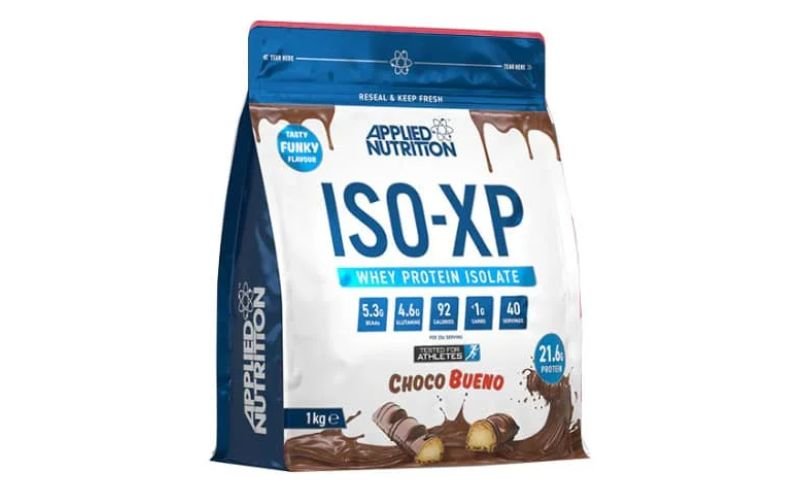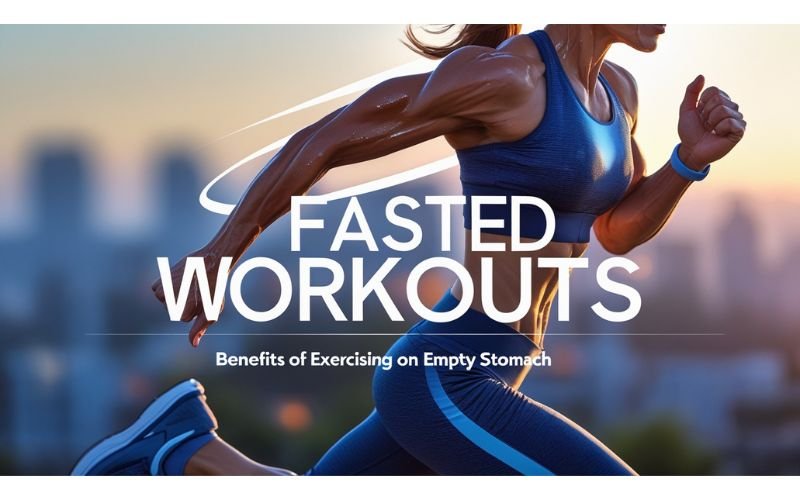No products in the cart.
Return To ShopFasted Workouts: Benefits of Exercising on Empty Stomach
Some swear by their morning coffee before a run, while others prefer hitting the gym on an empty stomach, chasing the elusive benefits of fasted workouts. Exercising before eating, also known as fasted training, has gained traction for its potential to accelerate fat loss and enhance metabolic function. But is it just another fitness fad, or does it genuinely offer tangible benefits?
Science suggests that fasted exercise taps into unique physiological responses, optimizing fat metabolism and improving endurance. However, it’s not a one-size-fits-all approach. Let’s delve into the compelling reasons why working out on an empty stomach might be worth considering.
Boosts Fat Burning and Metabolism
When you exercise in a fasted state—typically after an overnight fast—your body has minimal glycogen (stored carbohydrates) available. This forces it to turn to its fat stores for energy, enhancing fat oxidation. Studies have shown that fasted cardio can significantly increase fat burning compared to exercising after a meal.
Moreover, fasting stimulates the production of growth hormone, which plays a crucial role in muscle preservation and fat metabolism. It also upregulates catecholamines (adrenaline and noradrenaline), which further drive fat breakdown. If your goal is to lean out while maintaining muscle, incorporating occasional fasted workouts may be a powerful tool.
Optimize your recovery after a fasted workout with high-quality protein—replenish, rebuild, and stay strong with fast-digesting Proteins!

Enhances Insulin Sensitivity
One of the underrated benefits of fasted exercise is its impact on insulin sensitivity. Regularly working out in a fasted state can help your muscles become more responsive to insulin, reducing the risk of insulin resistance—a precursor to diabetes and metabolic disorders.
When you eat, insulin helps shuttle glucose into your cells for energy. However, in a fasted state, insulin levels are naturally low, prompting your body to use stored fat as fuel instead of relying on incoming food sources. Over time, this metabolic adaptation can enhance how efficiently your body processes carbohydrates when you do eat, making fasted exercise particularly beneficial for individuals looking to optimize their metabolic health.
Improves Endurance and Mental Resilience
Training on an empty stomach can push your body to adapt to stress more effectively. When glycogen stores are depleted, your body learns to utilize energy more efficiently, which can enhance endurance performance over time.
Fasted workouts also train mental grit. The initial discomfort of exercising without immediate fuel forces you to tap into discipline and resilience, strengthening your ability to push through fatigue. Many athletes and fitness enthusiasts find that incorporating occasional fasted sessions helps them perform better during prolonged physical activity, where energy conservation and efficiency are crucial.
Supports Digestive Comfort and Gut Health
Exercising immediately after eating can sometimes lead to digestive discomfort—bloating, cramps, or sluggishness. Fasted workouts eliminate this issue, allowing your body to focus solely on performance rather than digestion.
Additionally, intermittent fasting has been linked to improved gut health by promoting cellular repair processes like autophagy, where old or damaged cells are recycled. This can enhance overall well-being and reduce inflammation, particularly beneficial for those with sensitive digestive systems.
Potential Downsides and How to Avoid Them
While fasted exercise has its benefits, it’s not without potential downsides. Some individuals may experience:
- Decreased performance – If your workout is particularly intense or long, your body might struggle without immediate energy from food.
- Muscle loss concerns – Prolonged fasted training without proper nutrition afterward may lead to muscle breakdown.
- Fatigue or dizziness – If you’re not accustomed to fasting, you may feel lightheaded initially.
To mitigate these risks, start with low to moderate-intensity workouts before progressing to high-intensity sessions. Hydration is crucial—drinking water, black coffee, or electrolyte-infused drinks can help sustain energy levels. Post-workout nutrition also plays a vital role in recovery, which leads us to the next section.
Best Supplements for Post-Fasted Workouts
After an empty-stomach workout, your body craves nutrients to replenish lost energy and repair muscle tissue. Here are some of the best supplements to support recovery:
- Whey Protein – Helps rebuild muscle fibers and supports recovery. Opt for a fast-digesting protein like whey isolate for quick absorption.
- BCAAs (Branched-Chain Amino Acids) – Prevents muscle breakdown and aids in muscle recovery, especially beneficial if you did weight training.
- Creatine – Enhances strength and power output, ideal for those looking to build lean muscle.
- Electrolytes – Replenishes sodium, potassium, and magnesium lost through sweat, preventing dehydration.
- L-Glutamine – Supports muscle recovery and reduces post-exercise soreness.
Pairing these supplements with a balanced meal that includes healthy carbohydrates (like oats, bananas, or sweet potatoes) and lean proteins will maximize recovery and muscle repair.
Is Fasted Exercise Right for You?
Exercising on an empty stomach is not a magic bullet, but it does offer unique benefits, especially for those looking to enhance fat metabolism, insulin sensitivity, and mental resilience. It’s a tool—one that can be strategically incorporated into your fitness routine for optimal results.
If you feel energized and perform well without eating beforehand, fasted training could be a great addition to your regimen. However, if you notice a decline in strength or endurance, it might not be the best fit. Listen to your body, stay hydrated, and ensure proper post-workout nutrition to reap the full benefits.









Add comment